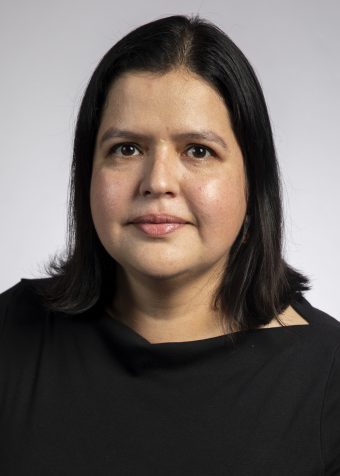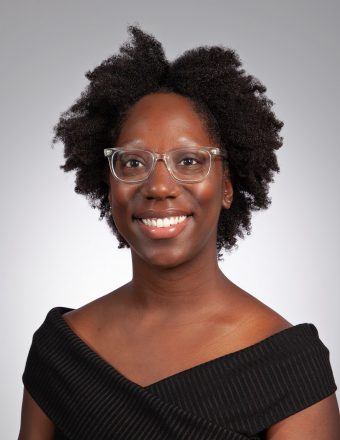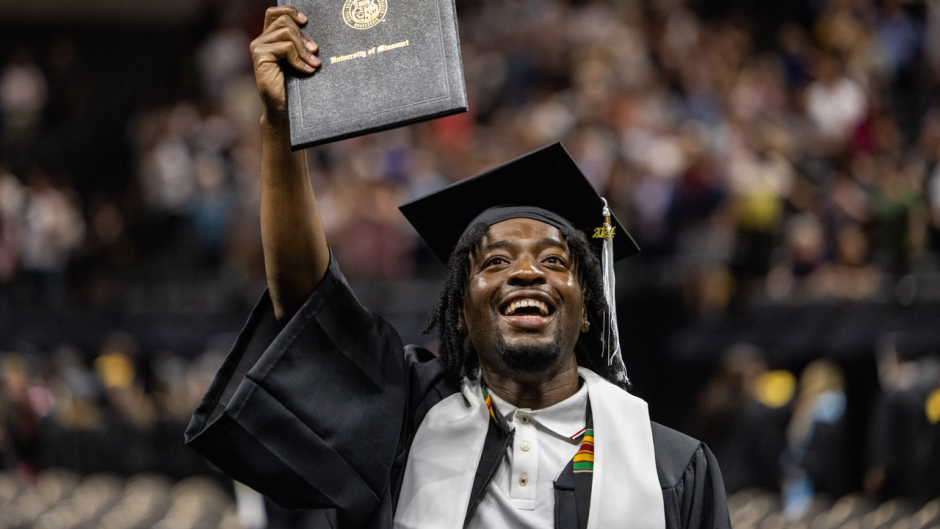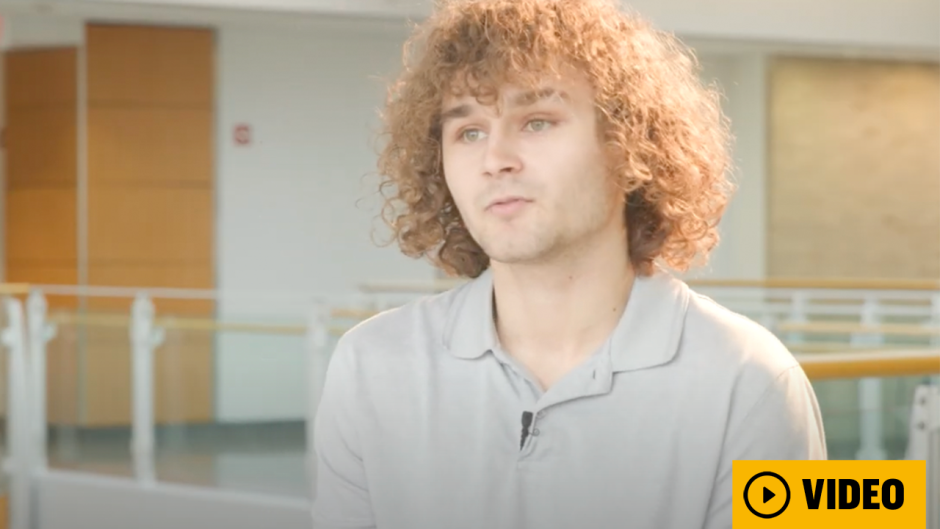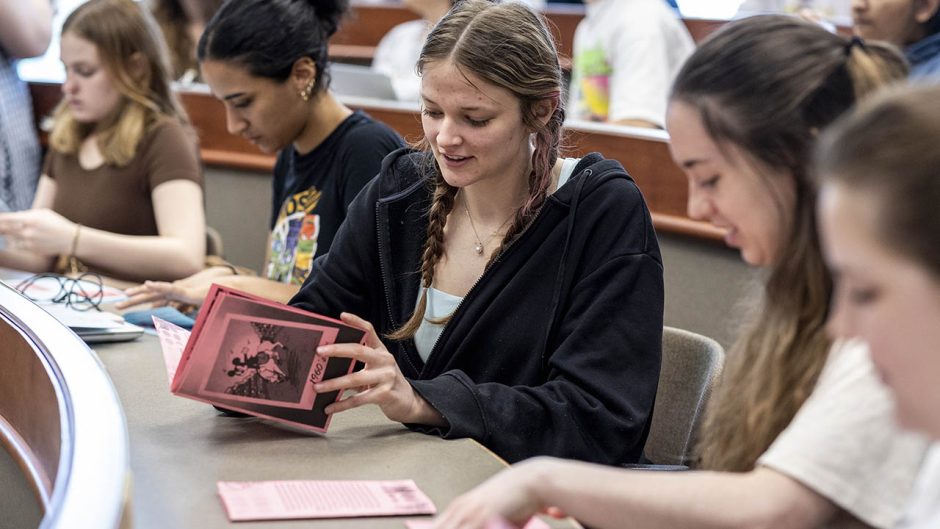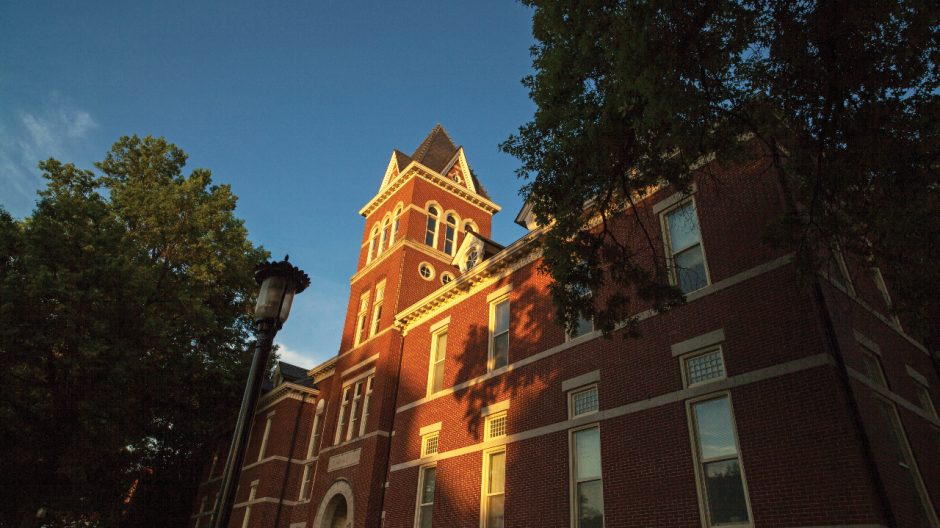Dec. 7, 2020
Contact: Kenny Gerling, gerlingk@missouri.edu
Sofia Ortega studied in Honduras and Chile before coming to the United States for a PhD in animal molecular and cellular biology. After graduating in 2016, the globetrotting cattle researcher was looking to join a postdoctoral program and take the next step in her career.
At the advice of colleagues, Ortega contacted Tom Spencer, Curators’ Distinguished Professor in Animal Sciences, to see what opportunities were available at the University of Missouri. “He knew my research from a grant project I’d worked on,” Ortega said. “He said there was a new program that was about to open, and he encouraged me to apply.”
That program was the Preparing Future Faculty – Faculty Diversity Postdoctoral Program, which offers mentorships and community support for scholars from underrepresented communities and to those whose scholarship would help build a more inclusive Mizzou. The two-year program prepares scholars for careers in academia, exposes them to opportunities at MU and guides them through essential skills such as creating a curriculum vitae, teaching, building research programs and grant writing. MU’s Division of Inclusion, Diversity and Equity (IDE) first proposed the program, which is run by the Graduate School and Office of Postdoctoral Education.
Ortega, who is now an assistant professor in animal sciences at Mizzou, was accepted into the program’s first cohort in 2017, with Spencer as her mentor. Four of the five scholars from that cohort were hired in tenure-track positions at Mizzou. The second cohort finished last spring and two of its four scholars were also hired to tenure-track positions at MU, while a third chose to continue on at Mizzou as a postdoctoral scholar.
Path to the professoriate
In 2017, MU and the UM System adopted the Inclusive Excellence Framework to help grow and sustain a diverse and equitable community while providing accountability through data-driven reporting.
Inya Baiye, assistant vice chancellor for inclusive excellence and strategic initiatives, cited the Preparing Future Faculty Postdoctoral program — along with the Faculty Inclusive Excellence Fund and trainings for search committees — as just a few of the many initiatives that have launched or expanded under the IE Framework.
Baiye said these programs are designed to offer professional support, but also to make Columbia a welcoming place for everyone. “Departments and colleges need to be aware of the specific issues certain faculty face due to their identities, and IDE is particularly focused on issues affecting junior faculty members of color,” she said, adding that even simple shows of support can make a big impression.
“We created a brochure for newer faculty that includes details about Columbia — such as the location of international grocery stores and where people can get their hair styled — and it’s a great recruitment tool,” Baiye said. “We always get great feedback when we share it and people appreciate that we are really thinking about them.”
Surrounded by support
Another program to begin under the Inclusive Excellence Framework is The Huddle. Launched this year, The Huddle includes 25 junior faculty members of color and 11 senior and retired faculty members. The “senior Huddlers” offer what Stephanie Shonekan, faculty fellow in the Office of the Provost and coordinator of The Huddle, called “an additional layer of support.”
“These junior faculty of color are surrounded by 11 wonderful, strong senior and retired faculty, who provide coaching and mentoring to help them think through career challenges like achieving promotion and/or tenure, developing a work-life balance, targeting grant support, publishing research, navigating campus politics, and considering paths to the administrative track,” Shonekan said. “But most importantly, The Huddle provides a community for our faculty to share these issues and collectively work towards a successful career at Mizzou.”
Alexandra Socarides, associate provost for faculty success and co-coordinator of The Huddle, said a key part of the program is the close collaboration between the provost’s office, IDE, faculty members and schools and colleges across campus. “It’s important that the provost’s office plays a role so that we can provide relevant and appropriate support for our faculty,” she said.
Baiye, who is the third co-coordinator of The Huddle, said programs like The Huddle and Preparing Future Faculty not only help attract underrepresented faculty members to campus, but also demonstrate that they can have long, successful careers at Mizzou.
“The goal of these programs is not just mentoring, but to provide the psychosocial support our faculty need,” Baiye said. “We’re working to develop a culture of holistic faculty support at MU.”
Inclusive excellence
Kaleea Lewis saw the growth of both Preparing Future Faculty and The Huddle firsthand. Lewis joined Mizzou in 2018 as a part of the second Preparing Future Faculty cohort. After finishing her postdoctoral work in May 2020, she was hired as an assistant professor in the MU Department of Public Health and the Department of Women’s and Gender Studies. Soon after accepting the position, she joined the first group of junior faculty in The Huddle. Lewis, who studies how race and racism affect the mental health of Black emerging adults, said she appreciated the opportunity to cultivate connections across the university and to acclimate to life in Columbia.
“Even though the vast majority of responsibilities for my job relate to academics — research, writing, teaching — I am still looking to foster friendships and build community here,” said Lewis, adding that this is the first time she’s lived outside her home state of South Carolina. Before the pandemic, she said she’d regularly meet with Preparing Future Faculty scholars for coffee, trivia and to celebrate some holidays.
“Preparing Future Faculty and The Huddle are ways to make sure that faculty of color know that they are wanted, recognized and supported on this campus, and there are a lot of things within the College of Arts and Science that have shown me that I really could make this place my home,” Lewis said.
As for Ortega, she has been a faculty member for more than a year and is a part of NextGen Precision Health, the UM System’s ambitious effort to accelerate lifesaving health care innovations. The NextGen building is scheduled to open next year, and Ortega said she’s eager to use those resources to continue her innovative research.
“Mizzou has been a leader in precision medicine and biology, but this initiative will bring it to the next level,” Ortega said. “It was clear to me when I moved to Mizzou that I was right where everything happens, so I was excited about the opportunity to be part of it.”
For more information about IDE and its programs to support an inclusive Mizzou, visit their website.

